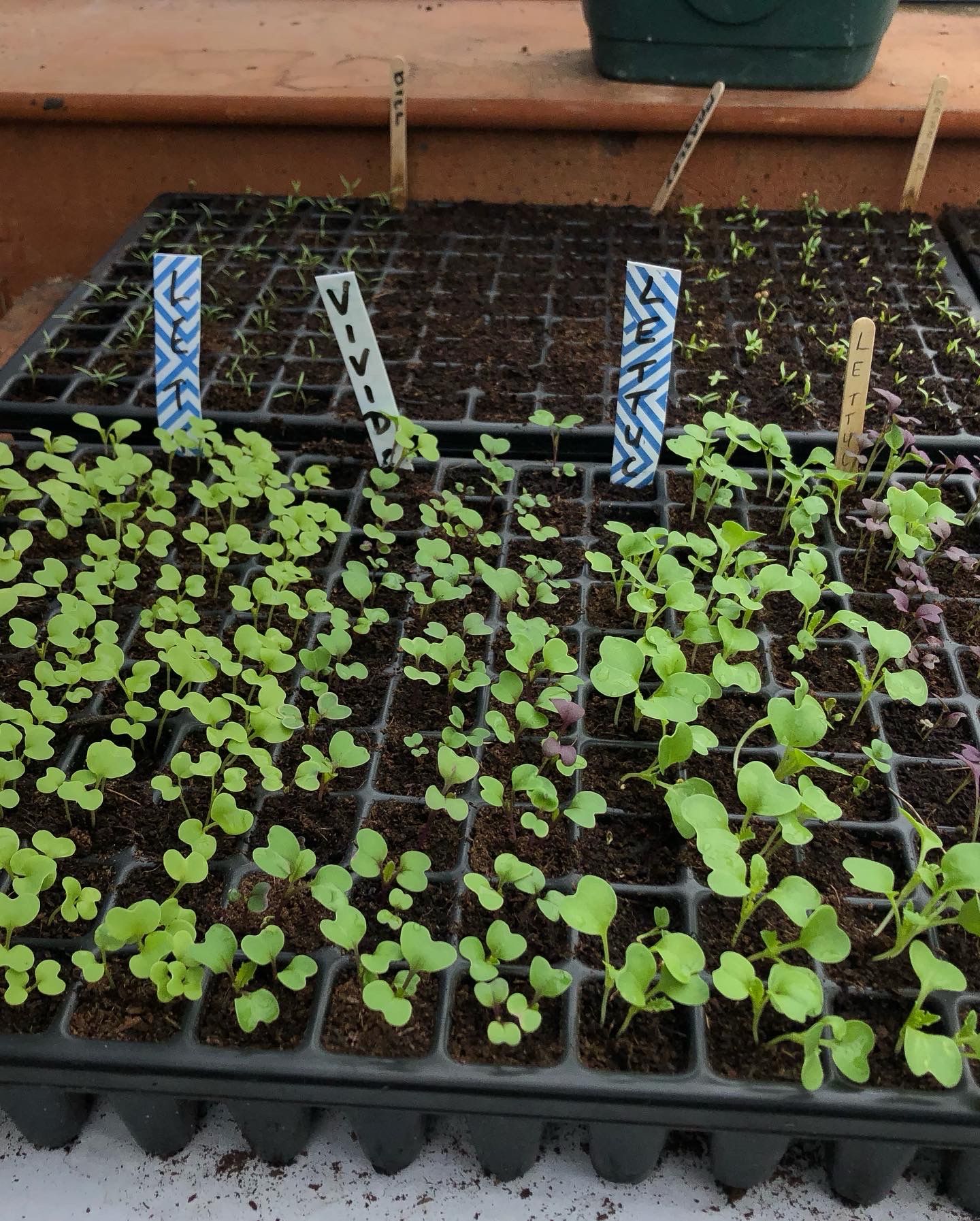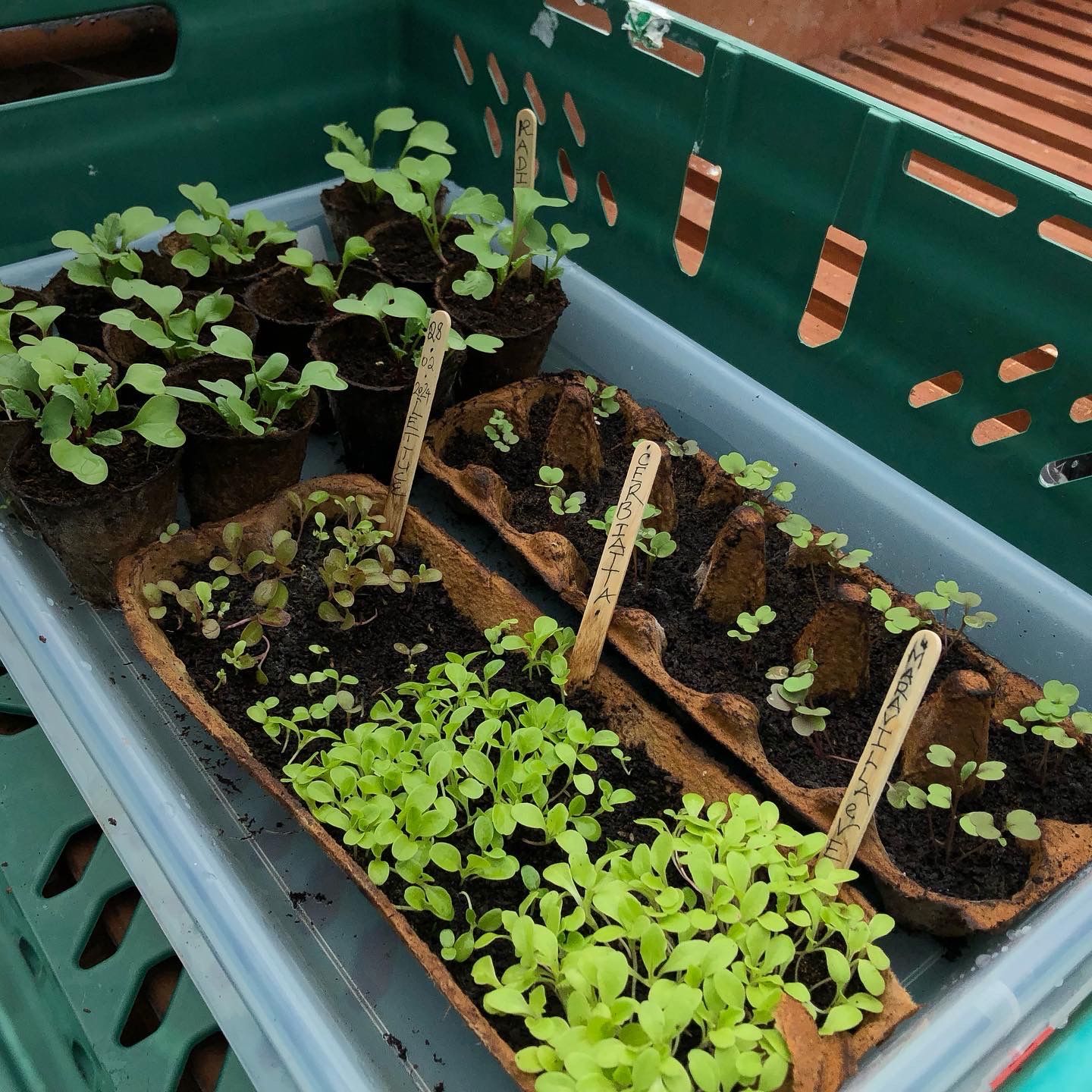SPRING has finally sprung, having passed the equinox on 20 March and the 31st marking the changing of the clocks.
I’m not a fan of the clocks changing as I like when nature decides what time it is and magically adding an extra hour of light doesn’t magically make it any warmer. or drier.
However, there is nothing nicer than getting out in the garden or local parks and green spaces on the brighter evenings. More daylight hours are better for our health and if you are a gardener you’ll know you need the extra time because it's suddenly gone from being too early to do anything to having to do everything all at once.
We can go full steam ahead with sowing and planting practically anything we want now. Those who planned ahead will have their windowsills lined with tomato and chilli seedlings sown back in February. Though, do not worry if you missed this: you can still buy these as plants in April from local nurseries and garden centres.
Whether you want to start a flower garden, grow your own herbs, plant in containers, grow food on an allotment or at school, getting the right advice at the right time is the key to your success. It's vital to follow local advice because many TV programmes and magazines are fronted by celebrities who live in a very different climate to ours so their timings and varieties can be a bit off.
My experience in growing (or in life in general) is that we, or the plants, need as much in our favour as possible for optimal results. My three top tips are:
- Buy good seeds;
- Use good compost;
- Grow what you actually like.
If you are starting out, grow things that will have a guaranteed success like potatoes, garlic, peas and beans. If you are growing in a school with no polytunnel, plant pumpkins, runner beans and main crop potatoes in April or May and you’ll enjoy the harvests when you come back in September.
Alternatively, nurture quick-growing crops like radishes, cut and come again lettuce and spring onions — but plant them soon!
It is not too late to plant onion sets and garlic cloves; the weather has been so cold nature is reading it as March. So don’t worry too much about dates and think more about the temperature and light.
SEEDLINGS
You can sow sunflowers now too in small pots of seed or multi-purpose compost to put on windowsills until they germinate and grow a little. Then you can plant these out next month.
If you have been enjoying growing for some time now, I recommend considering new varieties of crops and comparing yields and flavours. I also recommend trying organic and heritage seeds so as you can save your seeds for next year or pass them along to others.
Learning how to save seeds and store them is an exciting stage to be at so plan one crop that you’d like to start with and research it before giving it a go. School and spring fairs can be a great source of reasonably priced flower, annual bedding and vegetable plants and they are grateful for the support.
These are my suggestions for getting the right advice from local experts according to your own gardening project:
- Flowers: Mrs Bloom (aka Ann McCarron) provides in person workshops and sells bouquets of locally grown flowers;
- Books: Klaus Laitenberger’s ‘Vegetables for the Irish Garden’ is the perfect book for anyone keen to grow their own food. This is my favourite book and it's very easy to understand and navigate.
- Schools: The RHS Campaign for School Gardening has a wealth of resources for anyone involved in school gardening.
- Video tutorials: Check out ‘Portnoo Market Garden’ and discover short, simple daily reels about the basics in ‘how to ‘ from ground prep to transplanting.
- Food growing /No Dig Workshops: I recommend our own in-person monthly workshops at Colin Community allotments delivered by myself and Biruk Sahle. You can follow our work in the community as ‘New Leaf Community' on Instagram.
The next course is on 19t April from 10.30am-12.30pm and you can register your interest by emailing me.






